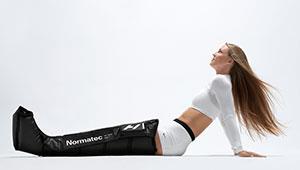5. Neck Pain
It's often caused by... stress, osteoarthritis, carrying a heavy bag over one shoulder, cradling a phone between your shoulder and neck, degenerative discs, and poor posture while sitting at a desk.
You should avoid... some yoga positions, such as headstands, that put pressure on your neck, running or other high-impact moves that trigger neck pain should be avoided too, says Dr. Safman.
Instead, you should try... walking, cycling, Pilates, and yoga positions that do not involve your head or neck stands.
6. Plantar Fasciitis
It's often caused by... tight calf muscles, foot-arch problems, long distance running, and sudden weight gain.
You should avoid... nothing, really, says Dr. Geier. "But if you're in pain, reduce any exercises with repetitive lower extremity impact, such as running."
Instead, you should try... the elliptical trainer or bicycle may be preferable to running, as they do not subject the foot to the same stresses, says Dr. Geier. (For solutions to your workout injuries, see Your Top 6 Workout Aches, Solved.)
More: 2 Yoga Poses for Plantar Fasciitis
7. Twisted Ankle
It's often caused by... rolling or twisting your ankle in an awkward way that stretches or tears the ankle ligaments.
You should avoid... any repetitive impact (like running or jogging) should be avoided in the days after the initial injury, says Dr. Geier.
Instead, you should try... focusing on upper-body exercise or non-weight-bearing workouts such as a stationary biking or swimming. To regain range of motion, draw the letters of the alphabet with your toes, says Dr. Geier.
8. Swollen Knee
It's often caused by... a tear in the meniscus (which is a c-shaped cartilage shock absorber in the knee) or ACL tears. But, says Dr. Geier, "patellofemoral pain-pain behind the kneecap-is the most likely cause of knee pain."
You should avoid... any exercise that recreates the pain, especially impact and stress such as running, lower extremity weights, and activities where you're jumping or changing direction. "Consider backing off of Stairmaster-type exercises," says Dr. Geier.
Instead, you should try... swimming, water aerobics, some yoga and/or Pilates if modified to avoid certain painful exercises. Also, include daily hip, thigh, and knee strengthening exercises, such as leg raises.
More: 9 Injury Prevention Tips
- 2
- of
- 2
Get ACTIVE on the Go


Couch to 5K®
The best way to get new runners off the couch and across the finish line of their first 5K.
Available for iOS | Android







Discuss This Article